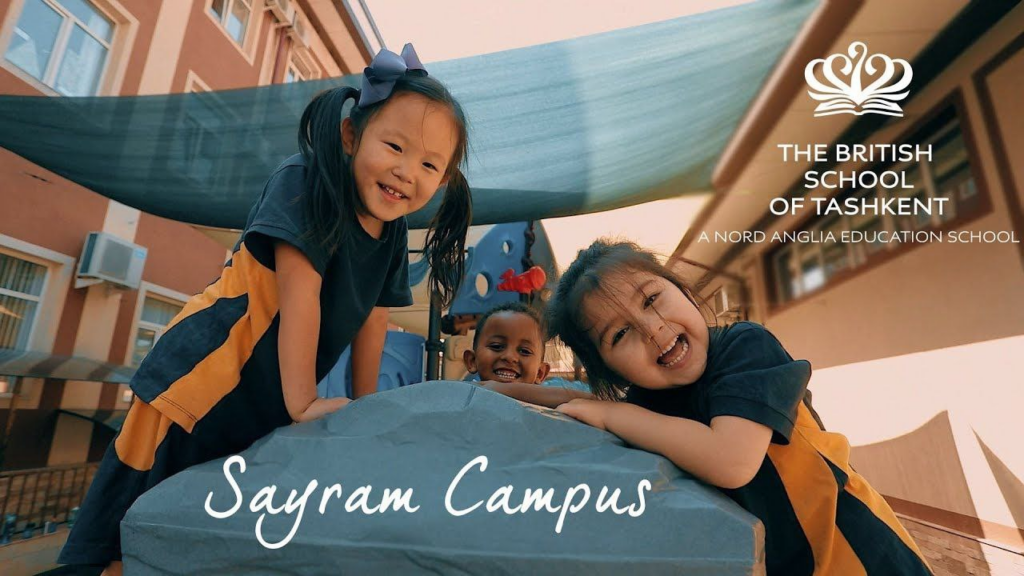‘‘BE BRAVE, KEEP TRYING, AND NEVER GIVE UP!’’ | AN INTERVIEW WITH FOREIGN TEACHER
November 2, 2024In recent years, Uzbekistan has become a destination for many foreign professionals, including educators, who bring diverse teaching methods and cultural perspectives to the country’s classrooms. As part of our exploration of this phenomenon, we had the opportunity to interview Kim Lyon Ekiz, a British-Canadian teacher who has been living and working in Uzbekistan for 3 years. In this interview, she shares her experiences, challenges, and the rewarding aspects of teaching in Uzbekistan, as well as her thoughts on how she has adapted to life in a new country. Through these reflections, we gain valuable insights into the cultural exchange that happens within the education system and the impact it has on both students and teachers.

1. Could you tell me about yourself?
My name is Kim, and I work as a school psychologist and teacher at the British School of Tashkent. I’m passionate about helping students with their mental well-being and academic growth. Outside of work, I love exploring new places, experiencing different cultures through travel, and spending quality time with my family. I’m British-Canadian, and I appreciate the blend of cultures and traditions from both sides, and this often enriches my perspectives as both an educator and a traveler.


2. What brought you to Uzbekistan, and how did you decide to work as a teacher here?

I had been fascinated by Central Asia for a long time, drawn to its rich history, diverse cultures, and unique landscapes. When my husband and I both received intriguing job opportunities in the region, we thought it would be the perfect time to explore this part of the world firsthand. With a sense of adventure and curiosity, we decided to embark on this journey, excited to experience the local culture, meet new people, and build our professional lives in a place that had captured our interest for years.
3. What differences have you noticed between the education system in Uzbekistan and your home country?
The education system here in Central Asia is impressive, particularly in its focus on languages and mathematics, which I find to be even stronger than in my home country. Students seem to develop a deep understanding of these subjects from an early age, with a level of discipline and rigor that really stands out. The emphasis on multilingualism, in particular, is remarkable, as it allows students to become fluent in several languages, broadening their global perspectives. It’s been fascinating to witness how these strengths shape students’ academic growth and overall intellectual development.


4. Have you faced any cultural or language challenges while teaching, and how did you overcome them?
Here, students tend to be quite introverted, often hesitant to speak up or express themselves openly in class, which means you have to be creative and adaptable to encourage active participation. Finding ways to break the ice and create a comfortable environment where they feel confident sharing their thoughts can be a challenge, but it’s also a rewarding process. Additionally, they seem to prefer more traditional teaching methods, such as lectures and structured lessons, rather than the more interactive or student-centered approaches that are common in other education systems. Balancing these preferences while introducing new, engaging techniques is essential to keep them motivated while respecting their comfort zones.
5. How would you describe your teaching style, and how do you adapt it to suit Uzbek students?

I prefer using student-centered teaching methods because they allow students to take an active role in their own learning and encourage deeper engagement with the material. One of my favorite approaches is to organize students into small groups, as this creates a more intimate learning environment where everyone has the opportunity to practice the language and contribute to discussions. By working in smaller groups, students are less likely to feel overwhelmed and more likely to participate, which is especially important in developing their speaking and listening skills. It also fosters collaboration and helps students learn from each other, which is essential for language acquisition.
6. What aspects of Uzbek culture or traditions have you found most interesting or impactful?

I absolutely love the Navruz traditions, with their deep cultural significance and the way they celebrate renewal and the arrival of spring. There’s something truly special about how people here are so in tune with the changing seasons, marking the transition with beautiful customs that connect them to nature and their ancestors. It’s a time of joy, togetherness, and reflection, and I find it fascinating how these traditions have been passed down through generations. In addition to Navruz, I also greatly admire the strong family traditions in this region. Families here maintain close-knit relationships, with a sense of duty and care that binds them together in a way that feels both comforting and inspiring.
7. What advice would you give to Uzbek students to help them succeed in their studies and future careers?
It’s important to try to build a strong network of connections wherever you go, as this can provide support, guidance, and opportunities for growth. Staying open-minded is key, especially when you’re in a new environment or facing challenges, as it allows you to learn from others and adapt to different situations. Be brave in the face of obstacles, and remember that persistence is essential—keep trying, even when things don’t go as planned, and never give up on your goals. Every setback is an opportunity to learn and grow, and with determination, you’ll eventually find your path to success.
Shahrizoda Xasanova
4th Year Student, International Journalism Faculty
Uzbekistan State World Languages University, UZSWLU


No Comments so far
Jump into a conversationNo Comments Yet!
You can be the one to start a conversation.